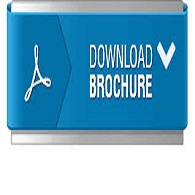Biography
Biography: Yashaswini R
Abstract
Telepractice is the application of telecommunication technology to the delivery of speech-language pathology and audiology services at a distance by linking clinician to client or clinician to clinician for assessment, intervention, and/or consultation (ASHA website 2022). Speech-language pathology (SLP) is defined as the profession that engages in communication and swallowing across the life span. Tele-SLP in India is relatively a new field half a century old (Rao & Yashaswini, 2016). Although there are several challenges in the Tele-SLP vizs of lack of specific training for professional skills in Telepractice, lack of valid digital resources, lack of empirical studies on comparison between face-to-face, virtual or hybrid service delivery, lack of a solid mechanism to protect client’s privacy on e-platforms (Rao & Yashaswini, 2016), the field is growing. In the past 3 years, post Covid-19 pandemic, Tele-SLP has also seen a boost due to the implementation of the Covid-19 safety protocol. The total number of sessions delivered from the Tele-Center for Persons with Communication Disorders has seen an increase of 36%-50% in the past three years.
The usefulness of Tele-SLP in the management of Aphasia, Stuttering, and Speech Sound Disorders is already established. The SLPs taking a conservative approach were forced to use Tele-practice more extensively with meticulous planning and precautions in areas where telepractice was not explored. The present study attempts to project insights to telepractice in the management of Aphasia, Stuttering, Speech Sound Disorders. In addition, it also focuses on the challenges and ways to overcome those for subjective assessment of Dysphagia and implementation of Alternative Augmentative Communication with case studies.

